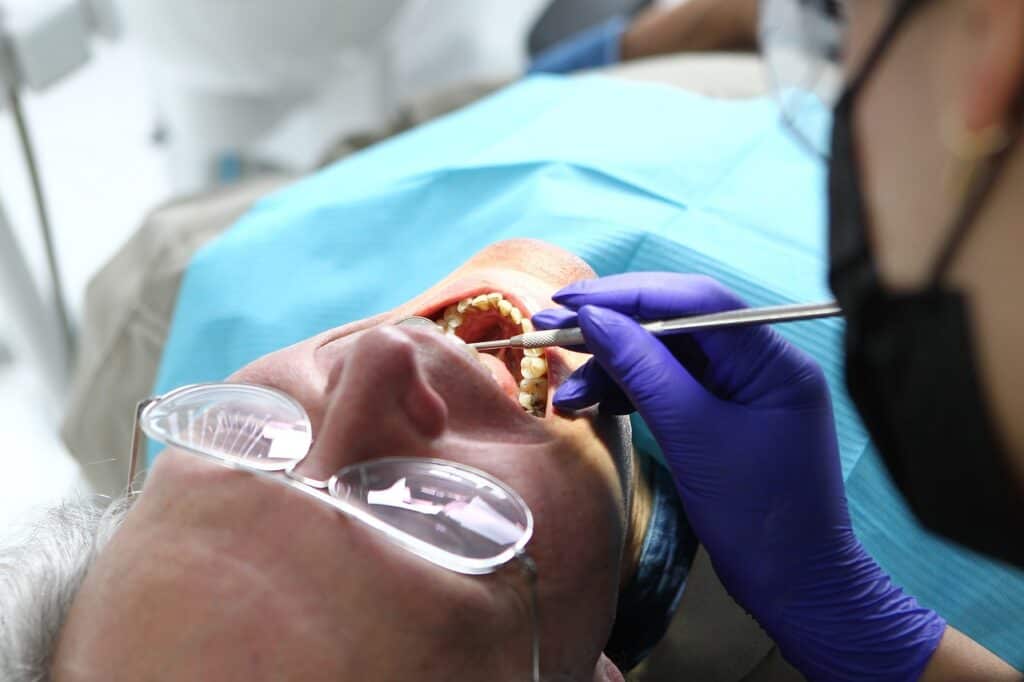Have you just moved to a new town? Has your dentist retired or passed away? Are you skeptical or concerned that your dentist is not treating you well? Maybe you feel like your dentist is over-charging you or over-treating you or both. You’re not alone. For most people, trying to find a good dentist is intimidating, time-consuming, frustrating and simply not an enjoyable task. So how will you be able to find one that is skilled, knowledgeable, can work with you and be empathetic?
Online?
Online reviews by patients rarely paint an accurate picture of the dentist and office staff and provide little insight into the dentist’s competency (or lack thereof). The natural course of action is to ask around. We ask our co-workers, neighbors, friends, family members and hair stylist. Here’s what they say:
“My dentist gives shots that don’t hurt.”
“Everyone in the office is so friendly.”
“My dentist uses a laser.”
“They charge less than the last one I had.”
“Dr. Brightsmile is the kindest person you’ll ever meet!”
Word of Mouth?
That’s all fine and good, but are we asking the right people? Usually not. Word of mouth referrals by non-dental people won’t give you the information you need to make an educated choice. But what about referrals from other dental professionals? You should be taking advice from other people in the business. How do you think dentists choose who works on them and their families? I can tell you it’s not based on how friendly and engaging they are or what fancy new gadgets they have in their office.
The dental community is surprisingly small and both good and bad ones do stand out in the crowd. Dentists who have practiced in the community for a while usually have an idea of who these people are. Am I asking you to go into any random dental office and ask the dentist who he or she goes to for care? Absolutely not! There is a much better way to get the information that you need.
As most of you already know, there are general dentists (also known as “family” or “restorative” dentists) and there are dental specialists. The vast majority of people should seek out a general dentist first who can then determine if specialty care is necessary. Twelve specialties are recognized by the National Commission on Recognition of Dental Specialties and Certifying Boards.
1. Dental Anesthesiology
The specialty is dedicated to promoting patient safety as well as access to care for all dental patients, including the very young and patients with special health care needs. These are the dentists with extensive training in sedation and general anesthesia.
2. Dental Public Health
This is the science of preventing and controlling dental diseases and promoting dental health through organized community efforts. These are the dentists who know how best to treat dental diseases in large groups or communities of people.
3. Endodontics
Endodontics is the dental specialty which is concerned with treatment of diseases and injuries of the pulp (tooth nerve). These are the dentists that focus on doing root canals.
4. Oral and Maxillofacial Pathology
These are the pathologists of dentistry.
5. Oral and Maxillofacial Radiology
These are the radiologists of dentistry.
6. Oral and Maxillofacial Surgery
These dental specialists pull teeth – especially complicated impacted teeth – fix broken jaws, manage severe oral infections and place dental implants.
7. Oral Medicine
Oral Medicine is the specialty of dentistry responsible for the oral health care of medically complex patients.
8. Orofacial Pain
Orofacial Pain is the specialty of dentistry that encompasses the diagnosis, management and treatment of pain disorders of the jaw, mouth, face, head and neck. Dentists call on these specialists when they need help finding the source of and treating a patient’s dental and/or facial pain.
9. Orthodontics and Dentofacial Orthopedics
These dentists straighten teeth with braces and clear aligners and are the experts in facial and jaw growth.
10. Pediatric Dentistry
These specialists treat kids and special needs patients.
11. Periodontics
These dentists treat gum disease, gum recession, place dental implants and also treat sick and failing dental implants.
12. Prosthodontics
These specialists make replacement teeth and facial prosthetics. The cases they treat are usually complex in nature.

The Team Concept
General dentists and dental specialists work together as a team. The general dentist is the team leader and the point of contact for patient care – just like the medical primary care provider. The general dentist calls on the dental specialist as needed. Ideally, the relationship between the dentist and specialist is one of collaboration and mutual respect that provides optimal patient care and the best end result. So who really knows where the best general dentists can be found? Dental specialists know – because they work and interact with them every day. They see each others work.
For example, let’s consider a mid-career periodontist. The job of the periodontist is to help get the foundation of the teeth (gum and bone) as healthy as possible before the general dentist starts restoring and building on it. Makes sense, right? Since most dentists – and dental specialists – have a Type A, perfectionist personality, we all want the best end product and a happy patient. Specialists don’t want to be associated with general dentists that won’t work well with them and deliver exceptional results.
Most seasoned specialists have spent years building their practices and reputations and don’t want them tarnished by working with unskilled, uncaring or reckless general dentists. The same can be said for more experienced general dentists. They, too, don’t want their own reputations and trust dissolved by working with poorly-trained, novice and inept specialists. As you can see, good providers tend to work with each other – especially later in their careers.
How You Find A Good Dentist

1. Be a good internet sleuth and do some research.
Look for practices that have been around for at least 10 years and, preferably, with the same dentist. These practices have weathered market down-turns, recessions and other economic stresses.
2. If you live in an area where there is an established specialist (like a periodontist), call that practice.
Ask to speak with the Office Manager. Tell the person why you are calling – that you are new in town or just looking for a different general dentist. This person will usually be happy to discuss how long the specialist has been in practice and the local general dentists that they work with. Ask the office manager, “Who are your best referral dentists? Who does your office prefer to work with most?”
3. Call one of the recommended offices and ask them if they are taking new patients.
Tell them who referred you. Ask them if it is okay to visit the office and briefly meet the dentist before committing to a comprehensive exam and x-rays. Most good offices are happy to accommodate patients who have a vested interest in their own oral health.
4. Trust your gut.
The office staff and doctor should make you feel welcome, safe and be transparent about all aspects of their practice. They should be proud of what they have built, how they handle infection control and the quality of work they produce as a team. If you aren’t getting a warm, fuzzy feeling about the practice, try another specialist-recommended general dentist office until you feel good about your choice.
Most people spend more time planning their next vacation than researching and seeking out a family dentist. By using the above tips, you should be able to quickly narrow the playing field and, hopefully, find a skilled and caring dentist you can trust.
Final Thoughts
Not all personalities mesh well – patients and doctors included. The goal is to find someone you can trust who is compassionate, skilled and knowledgeable but also knows their limits.
Unless you live in a very small town where specialists may be many miles away, you don’t want to go to an office that does it all and never refers any patient out to a dental specialist for any procedure. These so-called “super dentists” are islands unto themselves and either can’t afford to send patients out to specialists or simply choose not to.
Many are new dental school graduates with huge student loan debt and are willing to do any and every procedure possible to pay the bills – and these bills can be significant. In addition to student loan debt, many young dental school grads are struggling with the costs of opening a practice, renting or buying a home, auto loans, credit card debt and their own health care costs.
Am I advising you to steer away from young dentists? Absolutely not! The students and residents coming out of their programs now are some of the best and brightest people I have had the honor of educating and mentoring. Admission to professional schools has never been more competitive and the pool of new dentists is more diverse than ever. They bring a refreshing energy, optimism, up-to-date skill set and knowledge of technology that older providers can rarely match. Good ones search out other dentists and dental specialists to collaborate with so their patients can get the best care possible.
Remember – the general dentist is the team leader and good team leaders surround themselves with talented specialists who can assist them in creating and executing an optimal treatment plan.

